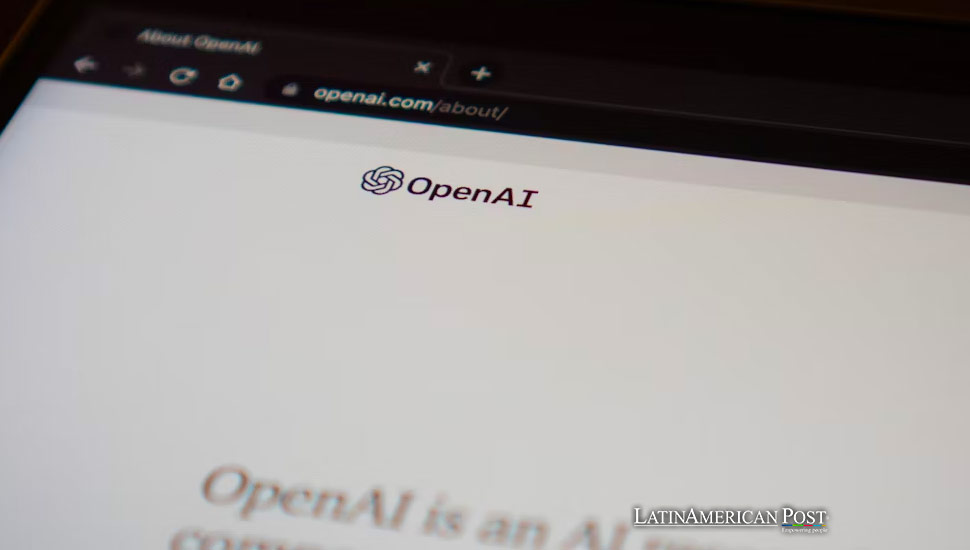Brazil Adopts OpenAI for Legal Efficiency Amid Rising Court Costs

Brazil’s government is partnering with OpenAI to enhance the efficiency of its legal system using artificial intelligence. This initiative aims to mitigate the escalating costs of court-ordered debt payments, which have significantly impacted the federal budget.
Brazil’s government has taken a significant step towards modernizing its legal system by partnering with OpenAI to implement artificial intelligence (AI) solutions for screening and analyzing thousands of lawsuits. This initiative aims to prevent costly court losses straining the federal budget. The AI service will flag lawsuits that require government intervention before final decisions are made, helping to map trends and potential action areas for the solicitor general’s office (AGU), Reuters reported.
Microsoft will provide the AI services through its Azure cloud-computing platform, using technology developed by ChatGPT creator OpenAI. The financial details of the agreement between Brazil and OpenAI were not disclosed.
Addressing Escalating Court Costs
Court-ordered debt payments have been consuming an increasing share of Brazil’s federal budget. The government estimates it will spend 70.7 billion reais ($13.2 billion) next year on judicial decisions beyond appeal. This figure excludes small-value claims, which historically add around 30 billion reais annually. Together, these amounts surpass 100 billion reais, a substantial increase from 37.3 billion reais in 2015. This total represents about 1% of Brazil’s gross domestic product (GDP) and is 15% more than the government plans to spend on unemployment insurance and wage bonuses for low-income workers next year.
The AGU did not specify the reasons behind the rising court costs but highlighted the growing burden on the federal budget. Implementing AI is seen as a crucial measure to increase efficiency and accuracy in handling legal cases, ultimately reducing the financial strain on the government.
Leveraging AI for Legal Efficiency
The AI project, as explained by the AGU, will not replace the work of its members and employees. Instead, it will enhance their capabilities by providing more efficient and accurate case management tools. “It will help them gain efficiency and accuracy, with all activities fully supervised by humans,” the AGU told Reuters. This approach ensures that the AI complements human efforts, improving the overall effectiveness of the legal system.
The use of AI in legal proceedings is a growing trend worldwide, offering potential benefits such as faster case resolution, reduced backlog, and improved resource allocation. Brazil aims to streamline its legal processes by integrating AI, making them more responsive and cost-effective.
Government and Technological Collaboration
In March, the Brazilian Planning Ministry allocated 25 million reais in supplementary credits to the AGU to support initiatives, including the implementation of strategic information technology projects. This funding underscores the government’s commitment to leveraging technology to address complex challenges within the legal system.
The collaboration with OpenAI and Microsoft is a part of this broader strategy. Microsoft’s Azure cloud-computing platform will facilitate the deployment of AI services, providing the necessary infrastructure for handling large volumes of legal data. OpenAI’s advanced AI models will analyze this data, identifying patterns and trends that can inform proactive legal strategies.
The initiative reflects a growing recognition of the importance of public-private partnerships in driving technological innovation. By collaborating with leading tech companies, the Brazilian government can access cutting-edge technologies and expertise, accelerating the modernization of its legal system.
Implications for the Future
Implementing AI in Brazil’s legal system is expected to have far-reaching implications. By enhancing the efficiency of legal processes, the government can reduce the time and resources spent on lengthy court cases. This, in turn, can lead to significant cost savings and a more sustainable budget.
Moreover, the success of this initiative could serve as a model for other countries facing similar challenges. The integration of AI into legal systems is still in its early stages globally, but Brazil’s proactive approach demonstrates the potential benefits of such technology. If successful, it could encourage other governments to adopt similar strategies, fostering technological innovation in the legal sector.
Additionally, the collaboration with OpenAI and Microsoft positions Brazil at the forefront of AI adoption in government operations. This move aligns with global trends toward digital transformation and showcases Brazil’s commitment to leveraging technology for the public good.
A Progressive Step Forward
Brazil’s partnership with OpenAI to deploy AI in its legal system marks a progressive step towards enhancing efficiency and reducing costs. By leveraging advanced technology, the government aims to mitigate the financial impact of court-ordered debt payments, which have significantly strained the federal budget. The collaboration with Microsoft and OpenAI reflects a forward-thinking approach, emphasizing the importance of public-private partnerships in driving innovation.
Also read: Brazilian Court Denies X’s Request to Exempt Subsidiary from Legal Responsibility
As Brazil continues implementing this AI project, the potential benefits extend beyond immediate cost savings. The initiative could lead to more responsive and effective legal processes, setting a precedent for other countries. By embracing AI, Brazil is positioning itself as a leader in the digital transformation of government operations, showcasing the transformative potential of technology in addressing complex challenges.





